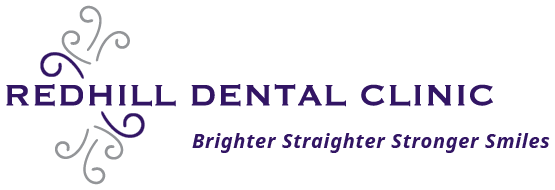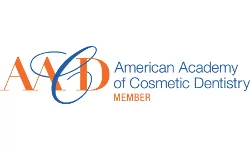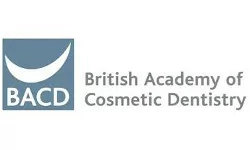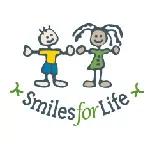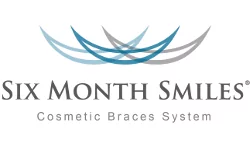
With more more people now requesting adult orthodontics we thought it worthwhile putting together a list of some of the most common questions that people ask. We are going to split this article into two sections:
- Adult braces and questions about oral health.
- General questions about adult braces.
Adult braces and questions about oral health
Is it safe to get braces while having cavities?
Before you begin any form of orthodontic brace treatment you will be required to have an oral health assessment. If you have fixed braces these are typically more difficult to clean than natural teeth so it’s important that your oral health care regime is good prior to having braces fitted.
Because braces can harbour harmful bacteria your teeth can be more prone to cavities, this is especially true if you have cavities before getting braces.
It is pointless having straight teeth if all of them rot due to dental decay and cavities, your dentist will therefore want to ensure that you are cavity free and dentally fit before you begin your orthodontic treatment. Your dentist may choose to use dental sealants prior to providing braces in order to ensure your teeth remain healthy throughout the process.
Can braces cause a tooth to die?
It is highly unlikely that orthodontics will call the tooth to die, there are however side-effects of orthodontics which can involve tooth resorption. In exceptionally extreme circumstances this could theoretically cause a tooth to die. Research conducted In the Dental Press Journal of Orthodontics in 2015 found that 2.9% of orthodontic cases (out of a sample of 959 teeth) presented severe route resorption.
In reality many patients will never know that this has happened and orthodontics proceeds a symptomatically on this front.
What happens if you don’t brush teeth while you have braces?
Regardless of whether you are wearing braces are not, if you don’t brush your teeth you dramatically increase your risk of developing tooth decay. If you have fixed braces then these have more places for the bacteria to lurk, consequently your oral hygiene needs to be better at preventing tooth decay. If you have removable braces, such as Invisalign then these can act in holding bacteria and the food that they feed off against your teeth for long periods of time.
It really is essential that you brush your teeth with a fluoride toothpaste and have good oral hygiene , particularly if you are wearing braces.
Why do teeth become yellow after wearing braces?
There is no clinical reason why teeth themselves become yellow after wearing braces, however there may be a couple of causes which can easily be rectified.
Small amounts of adhesive left on the tooth. If you have had fixed orthodontics and your specialist orthodontist has left small amounts of adhesive on the tooth after removing fixed braces then this adhesive, if left untreated can yellow. All that is required is to visit the hygienist and have this adhesive removed, your teeth will then be restored to then lovely white colour.
The etch used on your teeth leaves it rough. When you have fixed braces to have your teeth straightened then the orthodontist needs to etch your tooth (rough the surface) in order for the brackets to stick. When the brackets are removed this rough surface needs to be polished, if it isn’t it can pick up staying and look yellow. To remedy this all the dentist needs to do is to polish the teeth and your tooth colour will be restored.
Do I have to brush immediately after eating with braces?
After you eat or drink we recommend you wait 20 min for the tooth enamel to recover from the effects of the bacteria producing acid. If you have fixed braces you should then give your teeth clean ensuring you clean in between the brackets and arch wires using a small brush. If you have removable orthodontics we recommend giving your appliance a quick clean, as well as your teeth, before placing your brace back in again.
General questions about adult braces
Besides getting straight teeth, why do people get braces?
Braces can be used for a whole host of reasons other than straightening crooked teeth, for example:
- Modifying the position of the jaw to reduce the effects of snoring and/or sleep apnoea.
- Attempting to move teeth into a better position to enable a higher level of oral hygiene to prevent cavities.
- Moving teeth into a better functional position to prevent/reduce headaches and jaw joint problems.
- Realigning particularly buck teeth which stick out so much that they become dry. This can help to prevent the teeth drying out and cracking and keep them healthy for life.
Is there a cheaper alternative to getting braces?
Generally speaking it depends on your clinical situation. If you have a couple of teeth which are out of line then perhaps dental bonding could work to give the illusion of straightening. Dental veneers can also have the same effect. Bonding only takes an hour or so at the dentist so this can often be the cheapest option for very minor teeth straightening corrections.
Why am I suffering tooth gaps after orthodontic braces?
The first question to ask would be, are you wearing a retainer? Unfortunately your teeth will have a tendency to want to return to their previous positions, the way to prevent this is to wear a retainer for at least one year after your orthodontic treatment ends. Some orthodontists will fit a permanent retainer on the inside of your teeth to maintain the new tooth position. Some retainers are made from a clear plastic which you wear for 12 hours per day at night.
How effective is orthodontics in grown ups?
Orthodontics on grown-ups (adults is extremely effective). Orthodontics only used to be done on children because it was only children that would put up with wearing the metal or train track braces. However, nowadays with cosmetic braces such as tooth coloured brackets, clear braces or lingual braces (orthodontics on the inside of your teeth) adults are becoming more accepting of having orthodontic treatments.
The only time when child orthodontics is more effective than adult orthodontics is if the orthodontic treatment necessitates changing the shape of the jaw. If this type of orthognathic orthodontics is required then it can only be done as the child grows and their jaw develops, clearly this has already happened in an adult so we cannot utilise this growing and developing process.
